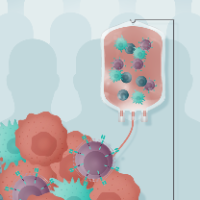Patient-specific factors that could influence gene therapy outcomes in sickle cell disease
Cell & Gene Therapy Insights 2024; 10(7), 1013–1019
DOI: 10.18609/cgti.2024.117
Sickle cell disease (SCD) is a chronic, debilitating inherited blood disorder that is considered one of the most common inherited disorders worldwide. Despite its description early in the last century, there is still no curative therapy apart from hematopoietic cell transplant (HCT), which requires the availability of suitable donors. The recent approval of gene therapy in SCD provides new treatment options for individuals with SCD. However, it is still far from ideal, as it requires (like HCT) myeloablative conditioning for the engraftment of genetically modified cells and may not fully cure the disease, but rather ameliorate its severity. This article will discuss potential host factors that may impact the overall success of gene therapy in SCD to be considered in future studies.
